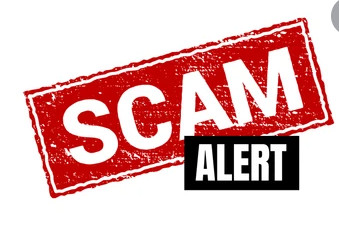Don’t Get Scammed By Fake Eldercare Calls Targeting Older Adults
Beware of phone calls from people claiming to be Eldercare Locator asking for your personal information or demanding payment. It’s all a scam. The fraudsters could claim your Eldercare is about to be cancelled or new Eldercare cards are being issued. Don’t fall for it. Here’s how the scam works, warning signs to look out for when you receive a call from Eldercare, and what to do if you’re already a victim of this scam.

How Does The Eldercare Scam Work?
The scammers often use phone spoofing technology to manipulate your Caller ID into displaying that they’re calling from Eldercare. Once you pick the call, the scammers would use your personal information that they found online (usually after it was leaked in a data breach) to build trust.
This could be your name, address, or date of birth. Then they create a sense of urgency to try and get you to act emotionally. In some cases, victims were told that their Eldercare card is about to expire or that they’re eligible for a special plan with lower premiums.
When they’ve succeeded in gaining your trust, they’ll ask you to “verify” your Eldercare number or other sensitive information. They might also pressure you to enroll in a fake or misrepresented plan, or convince you to send them money to pay for services.
Similar scam: Alert 1019 Scam Text Message
How To Spot The Eldercare Scam Calls
Asks for Sensitive Information
The caller pressures you into giving them sensitive information by saying you’ll “lose” the money if you don’t act now. Eldercare will never call out of the blue and ask for a Social Security number.
Requests for a Fee
You have to understand that the government will never ask for payment by gift card or wire transfer.
Use Threatening Words
No matter how convincing the caller sounds, once you’re being threatened to make an action do not do so. It’s all part of their scam tactics.
What To Do If You Receive an Elder Care Scam Phone Call
Hang up the phone.
If the call seems suspicious, immediatley hang up the phone. Don’t worry about being rude. You can always reach out to Eldercare directly at Eldercare.acl.gov or by calling the agency toll-free at 1-800-677-1116. Do not call back the number of the person who called you.
Report the scam call
If you’ve established it is a scam call, you should report the call and telephone number to the Department of National Elder Fraud Hotline at 833-FRAUD-11 (833-372-8311).
Inform your friends and family About The Scam
Let your friends and family members know that you’ve received a scam Eldercare call. If you’re on the same phone plan or in the same household, they could also be targeted by the same scam.
What To Do If You’re a Victim of The Eldercare Scam Calls
- If you’ve given personal information to a scammer, contact the FTC at IdentityTheft.gov and file an official identity theft report.
- Contact your local law enforcement and file a police report for identity theft.
- freeze your credit report to ensure that scammers can’t take out loans or open new accounts in your name.
- You should also contact your bank to inform them of the potential fraud. They’ll cancel your accounts and get you set up with new ones.
Conclusion
Unsolicited calls from Eldercare are suspicious and should be treated as a scam. The Eldercare Locator does not call or email people directly unless in response to a request.
